How To Protect Your Privacy Online?
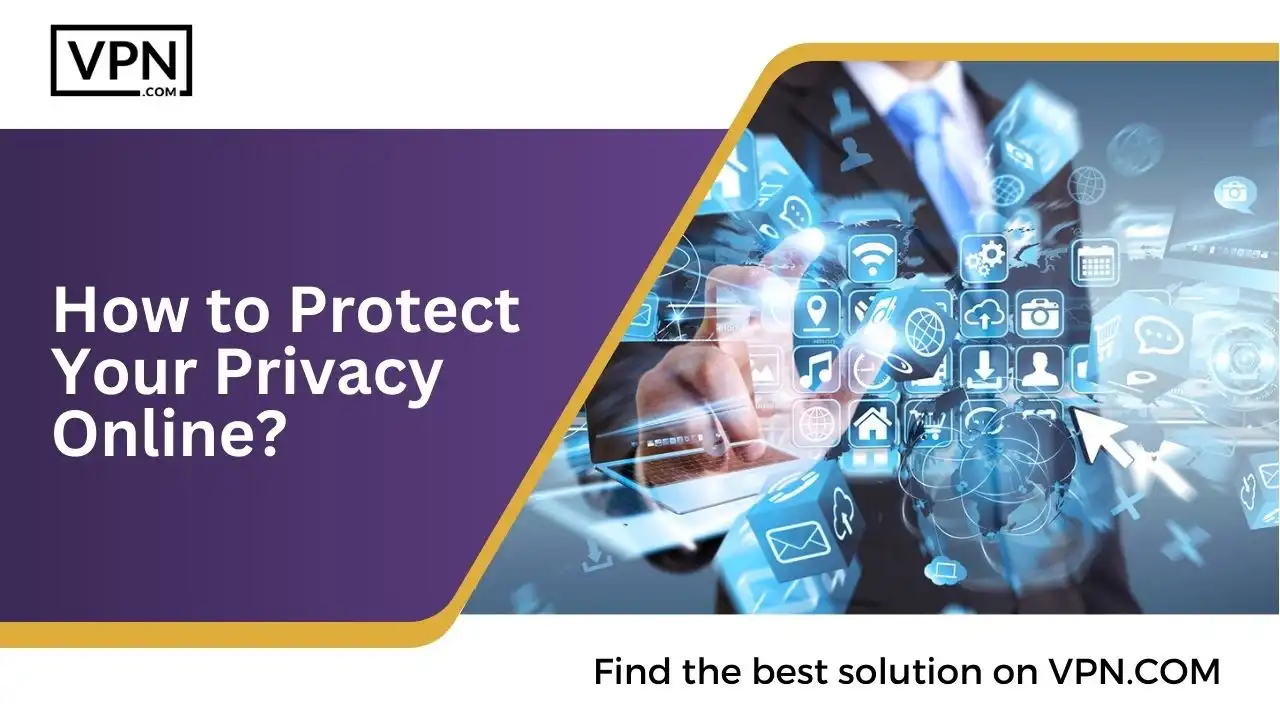
Are you among those web surfers constantly worried about their online privacy? VPN.com has the solution to your problem. Well! Online privacy has become a growing concern in the digital age. As we perform more daily activities online, from banking and shopping to communicating with friends, we share vast amounts of personal data.
This data is collected, stored, analyzed, and monetized without our knowledge or explicit consent. That’s why protecting our privacy is crucial.
This article provides an overview of online privacy risks and actionable tips to safeguard your data better. So, if you want to enjoy a safe browsing experience, stay tuned till the end!
What is online privacy?
Online privacy refers to the ability to control what personal information about ourselves we share online and who can get access to it.
This encompasses data ranging from browsing history, location, purchases, and communications to sensitive information like medical records, financial data, and more. Maintaining privacy ensures that we have control over our digital identities.

Get Started w/ NordVPN Today
- Top-rated VPN for OS unknown
- Ultra-fast speed in US in 2024
- Save 69% off with VPN.com Discount
- Plans starting at $2.99/month
GUARANTEE
How safe are we on the Internet?
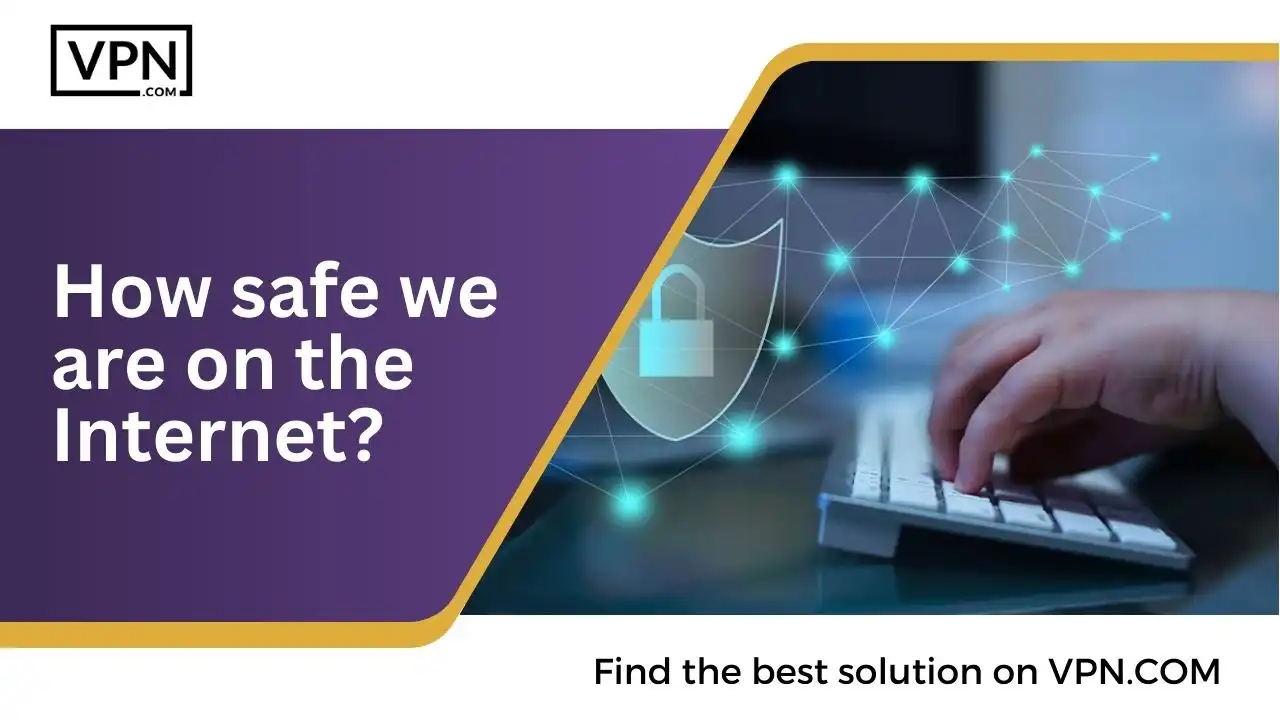
The short answer could be more. Studies show that consumers have minute trust in companies and governments properly handling their data.
This lack of trust is understandable, given the frequency of high-profile data breaches, invasive tracking and profiling techniques, and questionable data-sharing practices that are becoming common today. For example, over 22 billion records were exposed to data breaches in 2022 alone.
Privacy risks
Online privacy risks are increasing daily with internet usage to manage routine tasks. There are several ways our online privacy can be compromised:
Data breaches
Data breaches pose a major online privacy threat as they reveal confidential personal information to unauthorized parties, enabling identity theft and fraud. They occur when hackers penetrate company databases that store sensitive user data like emails, passwords, addresses, financial information, etc.
Once stolen, this data is sold on the dark web to criminals who misuse it for financial gain through scams or assume people’s identities to make transactions in their names.
The effects of data breaches range from destroyed databases to leaked intellectual property and costly regulatory notification requirements. Individual victims can have their identities hijacked, resulting in credit card fraud and damaged credit.
Tracking and Surveillance
Websites, apps, and various online tools extensively track user activities, locations, messages, and more – often without consent – to build detailed profiles and serve targeted advertising. For instance, cookies, pixels, and analytics services like Meta and Google collect granular data on how people interact with sites and content. This can include health information if tracking tools are used in hospitals and telehealth sites.
While tracking can enable personalized services, the data collected poses privacy issues if intercepted or exploited. Sensitive details about one’s health, communications, purchases, and movements can be gathered over time into an intimate dossier.
Yet individuals need more visibility or control over how this data is managed, shared with third parties, or secured. Many countries’ lack of robust data protection regulations gives rise to questionable collection and monetization practices. There are also fears that such surveillance chills free expression and forces self-censorship on social media.
Scams and Frauds
Scams and fraud threaten online privacy by allowing cybercriminals to steal personal information and money. Scammers use sophisticated phishing techniques, fake profiles on social media and dating sites, compromised accounts, and other tricks to defraud victims.
For instance, romance scammers build relationships and create stories to ask their targets for money. Imposters appear as trusted entities like government agencies to steal financial information. Compromised accounts recruit unsuspecting “money mules” to launder stolen funds.
In 2022 alone, over $10 billion was lost to internet scams, with numbers rising exponentially yearly. The effects stretch from identity theft to damaged credit ratings and substantial financial losses for individuals.
Scammers seamlessly exploit personal information shared online or obtained through data breaches to refine attacks. Lacking awareness of the latest scamming techniques further subjects people to risk.
Public Wi-Fi
Public Wi-Fi poses significant privacy and security risks as these networks often have poor encryption, allowing hackers to hack transmitted data easily. A common threat is “man-in-the-middle” attacks, where hackers position themselves between users and Wi-Fi routers to watch internet activity and steal passwords, financial information, etc. Even the network owner can monitor the browsing history of connected users.
Studies show that 40% of people have had data compromised on public Wi-Fi, with growing numbers of people using these insecure networks. Yet many must be aware of the dangers or take adequate precautions. Activities to avoid public Wi-Fi include online banking, shopping, accessing emails, or accounts requiring logins. Using encrypted apps also doesn’t ensure proper safety.
Oversharing Sensitive Information
Social media encourages people to share personal information freely, but this oversharing poses significant privacy issues. Users often unintentionally reveal sensitive details about their locations, ages, political views, etc., that criminals exploit for fraud or employers access inappropriately. For example, photos at vacation homes can enable targeted thefts. Oversharing by parents also compromises children’s privacy and safety.
Yet most social media users only personally know some followers viewing their content and lack awareness of long-term privacy risks. Weak privacy settings provide little protection against sophisticated hacking.
Information exposed across platforms and over time can be compiled to build detailed user profiles by companies, predators, and scammers alike. The result is compromised financial, physical, and mental well-being.
Lack of Data Protection Laws
Specifically, the research done by the experts of VPN.com illustrates that while some sectoral privacy rules and state laws exist in the US, no overarching federal law controls how private companies can collect, store, share, and use people’s data. This leaves internet users vulnerable as companies can amass massive amounts of information about individuals with few restrictions and limited oversight.
The risks arising from this regulatory gap are multi-fold. Without robust safeguards, consumer data can be misused, sold, or exploited without consent. The data can also be breached more quickly due to a lack of security requirements, enabling fraud and identity theft. Questionable data practices can prevail, like targeted advertising using children’s information. And people need more recourse or an eye over managing their information.
There are also economic impacts. The lack of trust in internet privacy and security fostered by such limited protections can deter people from conducting financial transactions, communicating sensitive information, or otherwise fully utilizing the internet for browsing.
Tips to Protect Your Privacy Online
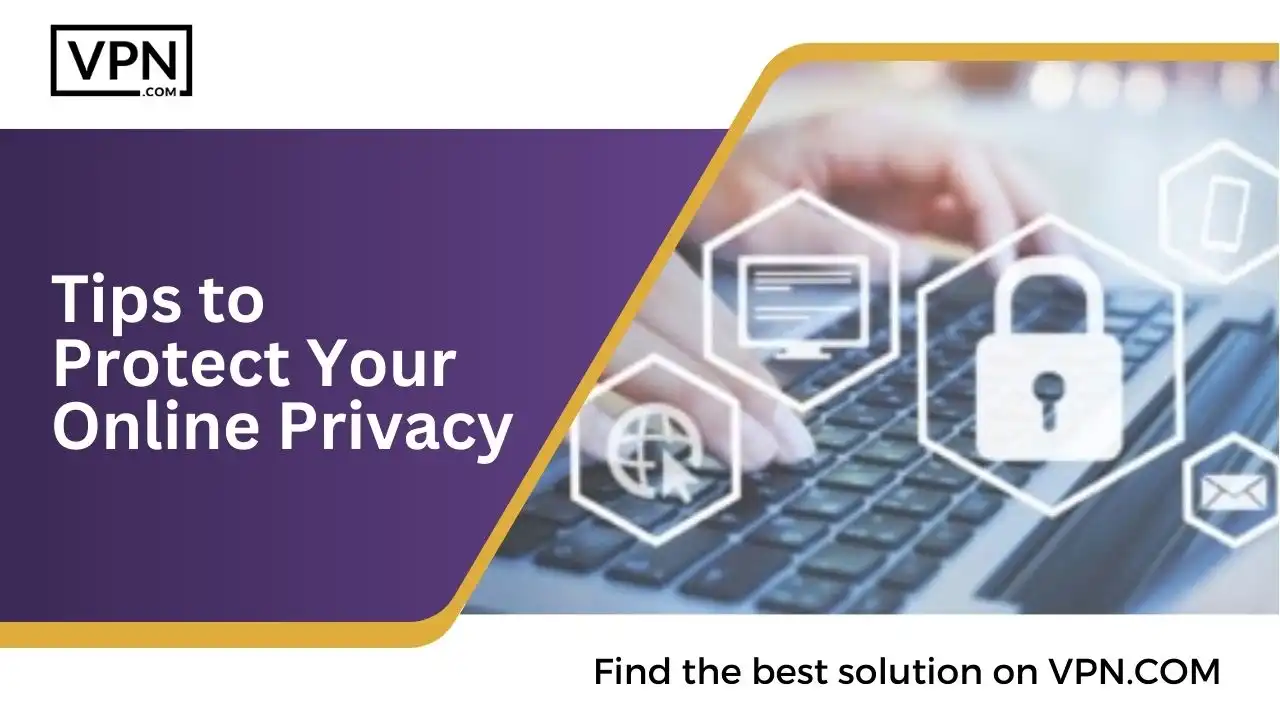
Following are some powerful techniques to protect your personal information from the malicious activities of cybercriminals. If you stick to these regulations, your privacy will be protected online.
Adjust Privacy Settings
Reviewing and customizing the privacy settings on your devices, browsers, and apps is essential to limit data sharing and protect your privacy online. For instance, turn off location tracking in your phone and browser settings when not actively using maps or services that require your location to protect your privacy online.
Also, restrict app access to your camera, contacts, microphone, etc., when unnecessary, as a measure to protect your online privacy. Set your profile and posts on social media to be visible only to approved friends rather than publicly accessible to maintain your online privacy.
Overall, adjusting privacy settings allows you to selectively share information only with trusted parties, preventing broader data exploitation by companies or criminals, crucial for protecting your privacy online. Revisit your settings regularly as platform policies and your comfort level sharing data may evolve with time. Taking the time to configure privacy controls puts you in charge of your digital security.
Avoid Public Wi-Fi
Public Wi-Fi poses significant privacy and security risks as these networks often lack encryption, allowing hackers to intercept transmitted data easily. A common threat is “man-in-the-middle” attacks, where hackers position themselves between users and Wi-Fi routers to steal passwords, financial information, etc. Studies show that 40% of people have had data compromised on public Wi-Fi.
Avoid accessing sensitive accounts or data on public networks whenever possible to mitigate these risks. Avoid online banking, shopping, or accessing emails/accounts requiring logins. Use a VPN to encrypt your connection and data if public Wi-Fi is necessary. Also, avoid sharing or accessing private files on unsecured networks.
Overall, caution is strongly warranted on public Wi-Fi to prevent interception of financial information, account credentials, etc. Taking basic precautions like using trusted VPNs allows one to benefit from the convenience of public hotspots while staying protected.
Use Privacy Focused Tools
Installing privacy-focused software tools like encrypted messaging apps (e.g., Signal), private search engines (e.g., DuckDuckGo), VPN services (e.g., NordVPN), password managers, and ad blockers can significantly improve your online privacy.
These tools restrict access to online activities and data by blocking tracking and securing communications and information. For instance, VPNs encrypt your internet traffic, while private browsers like Tor prevent monitoring of your browsing history.
Password managers generate strong and complex login credentials, while encrypted chat apps protect the confidentiality of communications. Such privacy-centric software limits the exposure of data for advertising or surveillance.
Just be sure to research tools for security vulnerabilities before adopting them. Overall, making privacy-focused tools part of your online habits makes it much harder for third parties to detect your online presence or access private information.
Strengthen Account Security
Using unique, strong passwords for every account is crucial for security. Generate complex 12+ character passwords with upper and lowercase letters, numbers, and symbols using a password manager like LastPass or 1Password.
Enable two-factor authentication (2FA) on essential accounts like email, banking, and social media for an extra layer of login protection via OTP sent to your phone. Change passwords routinely, especially if breached. Robust passwords and 2FA make it much harder for hackers to access accounts or steal identities.
Think Before Posting
Be extremely cautious in publicly sharing personal or sensitive professional information to protect your privacy online, as this data can be exploited to compromise security or enable harassment. For instance, posting complaints about managers or revealing proprietary work details could endanger your job and violate your privacy online.
Oversharing vacation plans on social media could prompt targeted robberies with criminals accessing location data. Customize privacy settings to restrict visibility, but carefully consider content to protect your privacy online.
Set all social media profiles to private and manually approve contacts. Actively monitor circles for suspicious accounts and block contacts engaging in predatory behavior. To maintain online privacy, never accept follower requests from people you don’t know.
If experiencing sustained harassment like bullying, immediately report the accounts to platforms. Consider taking periodic social media breaks to further restrict potential oversharing risks. Employ the same standard criteria online as when interacting with strangers in public to safeguard your privacy.
Read Privacy Policies
Carefully reading company privacy policies provides complete visibility into how personal user data will be leveraged, enabling fully informed consent. This includes details about what types of data are gathered, how they are shared with third parties, and the security protections in place. Individuals can contact companies to opt out or demand changes if certain data practices seem suspicious or risky.
While most privacy policies are lengthy legal documents, reviewing key sections is worthwhile to understand potential privacy risks. Review the summaries if available. You can also install browser extensions to analyze policies and highlight concerning elements. Overall, only unquestioningly agree to lengthy terms of service with basic precautions. Inform yourself to shape data access.
Monitor Records
Routinely monitor financial and medical account records and credit reports for any suspicious transactions or activity that could lead to fraud or identity theft to protect your privacy online. Watch for inaccurate information, accounts you didn’t open, questionable wire transfers, etc., as part of your efforts to protect your privacy online.
Consider taking credit monitoring services to receive alerts about suspicious credit inquiries. Immediately report unauthorized charges to institutions and place fraud alerts if needed to protect your privacy online.
Frequently checking statements and reports enables quick detection of potential identity theft from privacy breaches. Documenting evidence also aids in investigation and limiting damages. The effort required pays dividends in securing finances and medical data, crucial for maintaining online privacy.
Support Privacy Regulations
Support politicians and advocacy groups championing detailed online privacy protections and expanding consumer data rights through donations, volunteering, and spreading awareness to protect your privacy online.
This raises the need to vote for candidates prioritize digital rights to protect your privacy online. One can join non-profits like the Electronic Frontier Foundation fighting for privacy legislation and assisting with lawsuits against companies violating rights.
On an individual level, directly contact institutions like Facebook or health providers with formal complaints regarding any suspicious data practices that come to light to protect your privacy online. Put pressure on companies through consumer action. Ultimately, driving collective societal action is critical to implementing stronger privacy regulations and enforcement.
How to Keep Your Children Safe Online?
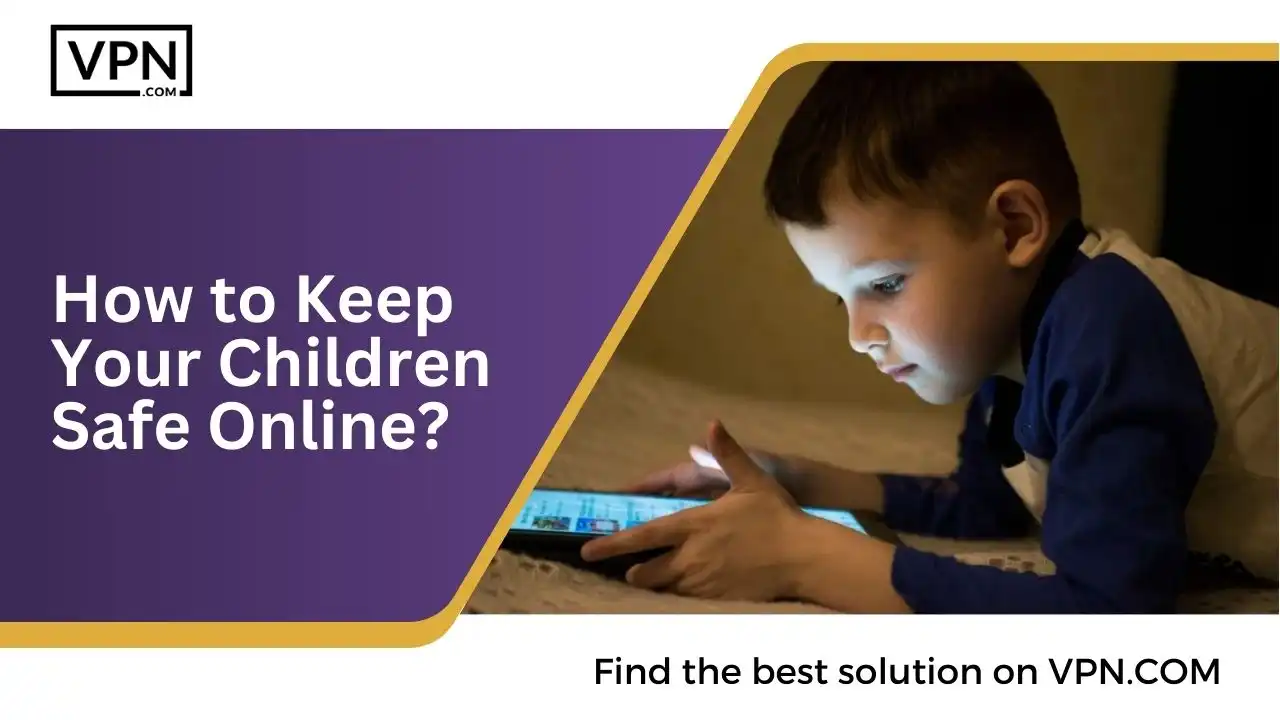
Children are also not safe from the tactics of cyber crooks. So, you should keep an eye on your children’s online activity. Following are some tips that will help you do so.
Discuss Online Safety
Have open and ongoing conversations about online risks starting from an early age. Explain dangers like bullying, predators, scams, harmful content, etc. Outline your rules and expectations for responsible device usage. Foster trust so children feel comfortable coming to you. Revisit topics as they grow into teens and social media use expands.
Set Device Guidelines
Institute age-appropriate device time limits and access guidelines. Young kids focus more on prescreened sites and apps. Limit unsupervised internet use. As kids reach middle school, introduce some independence but with monitoring software. Restrict late-night device use for teens and access to adult content across ages.
Use Protective Software
Install parental control software, kid-friendly browsers, search engines, social media and YouTube content filters, etc. Enable safe search settings. Use software to block inappropriate content, predators, and malware threats. Monitor usage with visibility into texts, emails, browsing history, etc.
Check Privacy Settings
Review and adjust account and app privacy settings regularly, as defaults often allow public sharing. Disable location tracking in apps. Limit personal data visibility. Set teen social media posts to “Friends only.” Guide teens on what constitutes oversharing.
Teach Online Safety
Instruct children to never share personal information publicly online or meet strangers they first met online. Talk about securing login information and behaving ethically online. Outline steps to report cyberbullying or uncomfortable interactions to you or platforms. Foster critical thinking about scams and misinformation. Discuss issues in age-appropriate ways.
How to avoid unwanted strangers online?
It’s prudent for people of all ages to be cautious when interacting with strangers online, whether kids, teens, adults, or seniors, to protect your privacy online. Applicable universal precautions include being skeptical of overly friendly strangers and not automatically accepting follow requests or contacting unknown people. Only readily share personal information publicly or meet strangers who first met online while taking safety precautions to protect your privacy online.
If contacted by suspicious accounts engaging in predatory behavior, block or report them to platforms right away per enforcement policies. Also, use privacy settings on social media and gaming profiles to limit what strangers can access. Keep online talk professional if for work to avoid oversharing. Essentially, apply the same common sense as with strangers approached randomly in public.
For kids and teens specifically, openly discuss online stranger danger risks and ensure they understand never to share location/personal details with unknown parties to protect their privacy online. Closely monitor underage social media and gaming interactions. Overall, for all ages, vigilance, security settings, and avoiding sharing sensitive data with unverified strangers are crucial to staying protected online from potential scams, harassment, or worse.
How do you keep your personal information private?
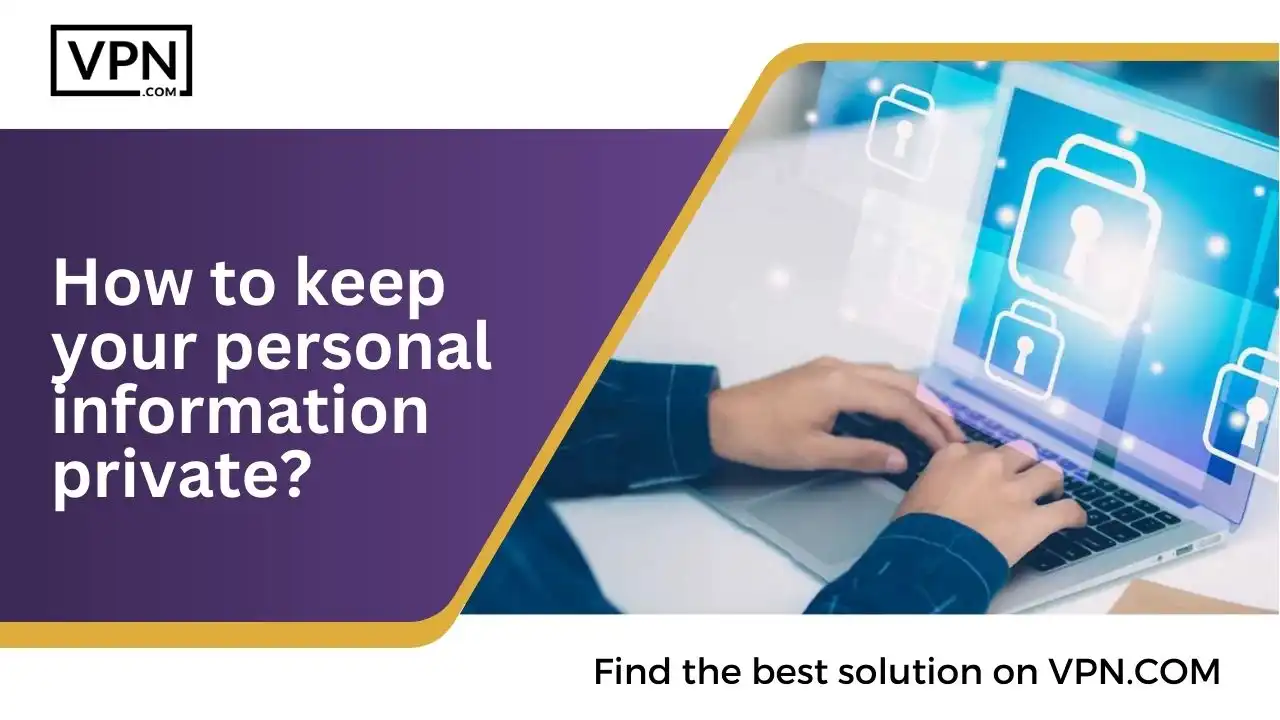
The following are some measures that may help you keep your confidential data out of the reach of intruders and cyberpunks.
- Use strong and unique passwords for all your online accounts. Consider using a password manager.
- Enable two-factor or multi-factor authentication on essential accounts whenever possible.
- Be very selective in sharing personal information publicly online or with companies to limit data exposure. Customize privacy settings.
- Use privacy-focused software tools like VPNs, encrypted messaging apps, private browsers, etc., to secure communications and data better.
- Be cautious on public Wi-Fi and avoid accessing sensitive accounts or data on such networks.
- Routinely monitor financial statements and records for suspicious activity indicating fraud or identity theft.
- Support consumer privacy regulations and protections. Contact companies directly with concerns over data practices.
- Take a layered approach with security tools, safe online habits, limiting data sharing, and collective rights advocacy.
The key is being proactive about online privacy through individual vigilance, corporate responsibility, and policymaker accountability.
What do you do if you think your privacy is violated online?
If you suspect your data was compromised in a breach or your privacy violated by a company, take swift action to contain potential damages and protect your privacy online. First, urgently change any exposed passwords and enable two-factor authentication on sensitive accounts to protect your privacy online.
Then, monitor financial statements and records closely for suspicious transactions indicating fraud or identity theft. Report unauthorized charges to institutions right away and consider freezing credit reports temporarily.
You should also check if the company has posted updates about the breach, removed exposed information from websites, or taken steps to notify impacted users. File formal complaints to escalate the privacy violation to relevant authorities and demand an accounting of remediation plans. Seek professional assistance if legal or technical matters are complex.
On social media, be vigilant about phishing attempts exploiting the incident and report suspicious communications. You can also directly contact platforms to take down damaging content to protect your privacy online.
Documenting evidence and being proactive helps limit harm from violations. But responsibility also lies collectively with users, companies, and policymakers to prevent such violations by strengthening online privacy rights and protections.
How do we help protect the privacy of others?
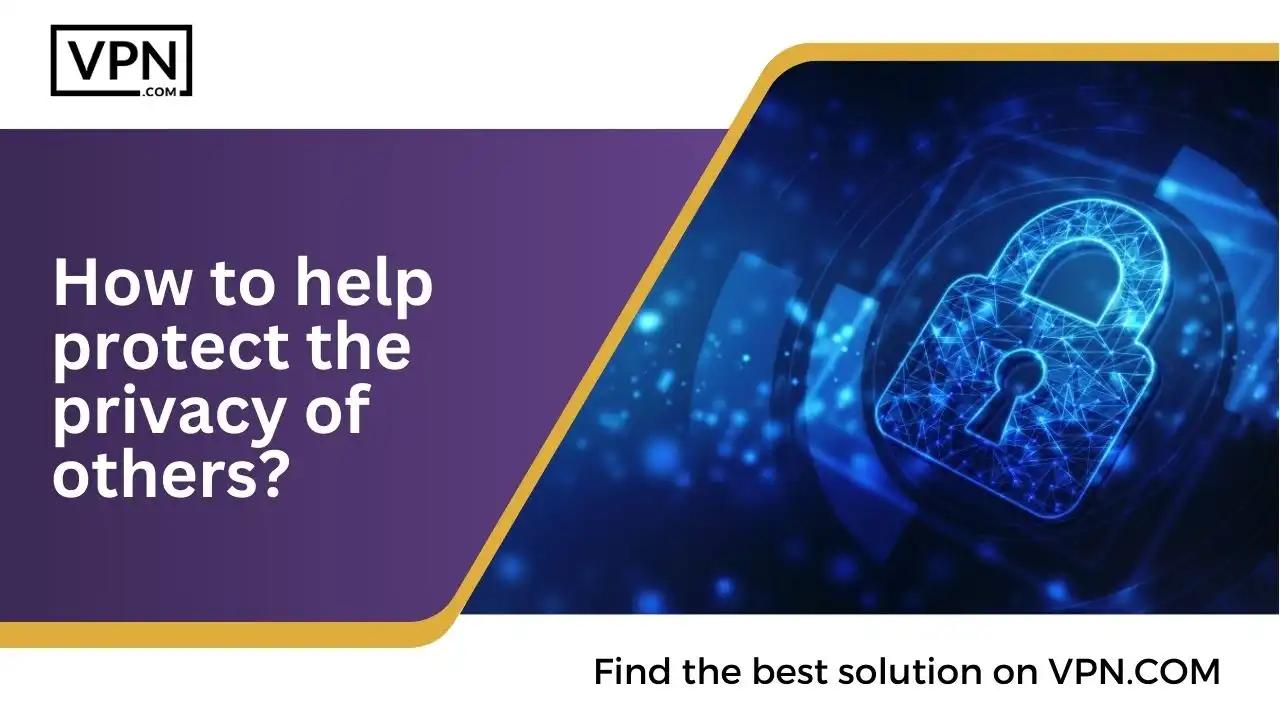
Here are some tips to help protect the online privacy of others:
- Be conscientious about posting information or photos of others online, especially minors. Always get consent and consider the privacy implications.
- If you see fake accounts impersonating people you know, report them. This helps curb identity theft and harassment.
- Advocate for comprehensive consumer data protection laws and regulations around collecting and using personal information. Support digital rights groups.
- Call out companies engaging in questionable data practices like selling user data without consent. File complaints demanding changes.
- Promote privacy education and tools among less tech-savvy people in your community through workshops, content creation, etc.
- Model responsible privacy practices on your social media by customizing visibility settings and being informed about sharing others’ information.
The key is driving collective action – through individual vigilance, policy changes, and corporate responsibility – to foster healthy digital spaces respecting privacy.

Get Started w/ NordVPN Today
- Top-rated VPN for OS unknown
- Ultra-fast speed in US in 2024
- Save 69% off with VPN.com Discount
- Plans starting at $2.99/month
GUARANTEE
Conclusion
In summary, online privacy, a pivotal aspect to protect your privacy online, should concern all internet users, given the growing digitization and prevalent threats like data breaches, tracking, and cybercrime. Fortunately, people can take robust measures to secure their data and mitigate risks to protect your privacy online.
But the responsibility also lies with governments to enact solid legal safeguards around data collection and use to protect your privacy online. Technology companies must make data privacy and security central in product development. The vision of an open internet that respects user privacy can be realized through collective action on all these fronts.
We suggest you run a VPN on your devices to prevent the violation of your online privacy. With a powerful VPN, you can browse the internet safely without being overwatched by cybercriminals and ISPs.
You can get top-notch VPN services from VPN.com at a very reasonable price. We hope that this information is enough to provide a fair answer to “How to protect your online privacy.” But if you still have any queries, please ask in the comments section!
Customer Reviews for NordVPN: In-Depth Review, Tests, and Stats

Connection issues with MLB.TV
May, 2 2023

Prompt customer service
May, 6 2023

I would highly recommend
December, 15 2023



